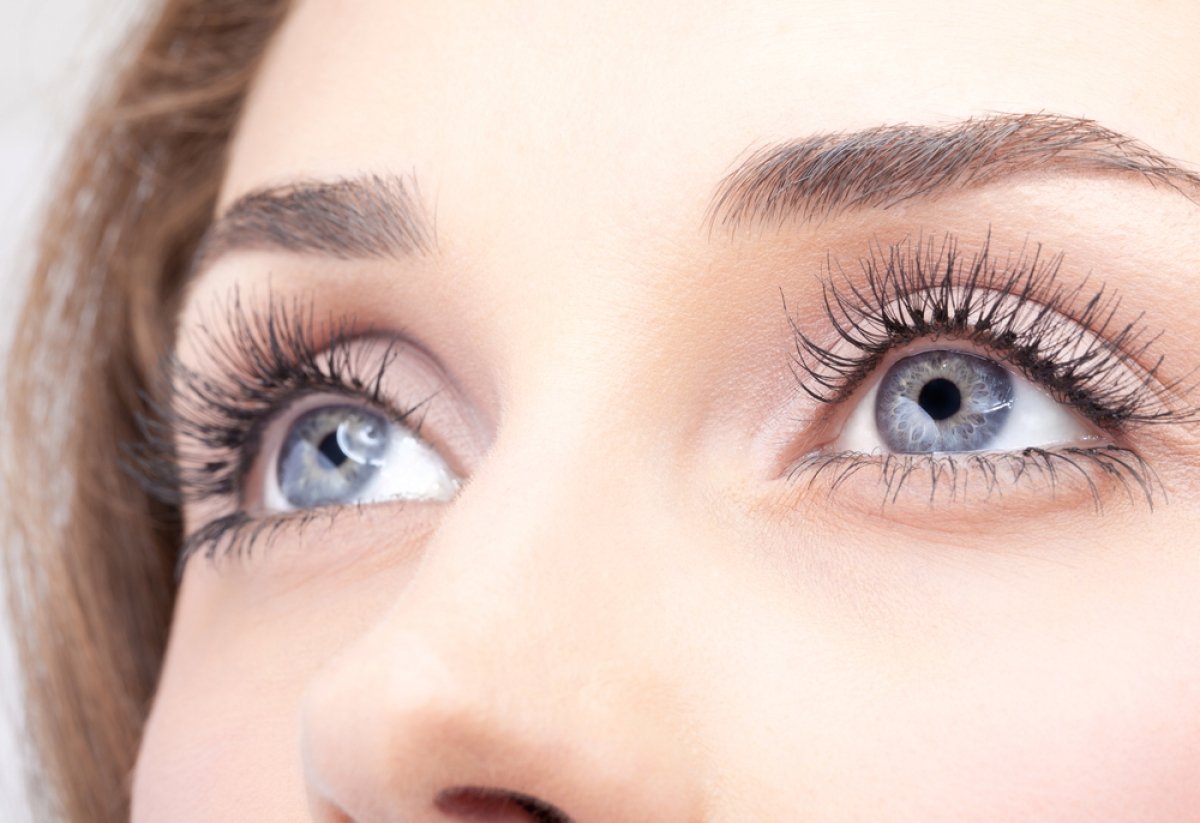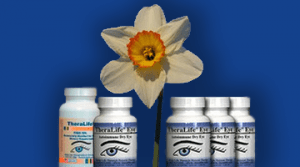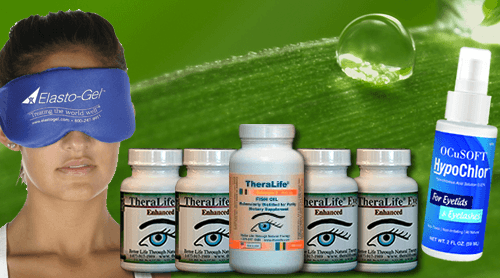Unveiling the Benefits of Theralife.com Products for Uveitis Patients
Delving into the world of uveitis, this extensive investigation spotlights its intricate causes and the numerous benefits of Theralife.com’s diverse range of products.
From the All-In-One Eye Enhanced Starter Kit’s potential to relieve dry eyes, to the Fish Oil supplement’s omega-3 benefits for ocular health, we traverse the array of therapeutic solutions offered by Theralife.com.
This analysis is designed to elucidate this often-confusing ocular inflammation for both clinicians and patients alike, equipping them with the knowledge to make informed decisions in the complex terrain of uveitis management.
The potential benefits of Theralife.com products, including the All-In-One Autoimmune Starter Kit and the Eye Lid Cleanser, are explored, highlighting their potential for managing autoimmune dry eye and maintaining eye hygiene.
This exploration aims to provide clarity on how Theralife.com’s products, such as the Hot Compress for Eyes and Macula Eye supplement, can support healthy vision and potentially alleviate menopause-associated dry eyes.
Key Takeaways
For patients grappling with uveitis, a complex ocular condition, Theralife opens a new avenue of holistic, natural treatment. Their range of products, including the All-in-One Eye Enhanced Starter Kit and the All-in-One Autoimmune Starter Kit, offer a unique approach to managing eye health that focuses on restoring cell functions internally.
Not only do Theralife products provide an alternative to traditional treatments, they also specifically address common symptoms associated with uveitis, such as dry eyes. Their offerings, such as Fish Oil and Hot Compress for Eyes, are designed to alleviate these symptoms. They also cater to specific conditions such as menopause-induced dry eyes and offer preventive measures like the MaculaEye supplement for macular health.
A notable aspect of Theralife’s approach to eye health is its comprehensive range of products. One such product is their Eye Lid Cleanser, a crucial tool for maintaining ocular hygiene. Clinical studies have shown significant patient improvement with these natural interventions.
Theralife’s commitment to continuous research and product development ensures their products are always at the cutting edge of ocular therapeutics. Patients can reap the benefits of their innovative, natural solutions for various eye health issues.
Powerful Uveitis Relief – All Natural and Effective – TheraLIfe
Customer success stories.
Uveitis Recovery – Canada
I was diagnosed with Uveitis back in 2019 and with constantly being on many different eye drops to control the inflammation & IOP, my doctor’s only advice was to put me on stronger medication. I knew I needed to make a change. My mom ended up finding Dr. Yang and her products online. I had some great calls with Dr. Yang, and after following her advice of taking the autoimmune eye vitamins, fish oil vitamins, and leading a better lifestyle of healthier foods and working out my eye began producing tears like normal. I have been able to ween off almost all my medication, and showing no signs of dry eyes/inflammation. I definitely owe the start of this positive chain of events to Dr. Yang & her team!
Melissa, Canada
Understanding Uveitis: Symptoms and Causes
Uveitis, a term describing a group of 40-plus inflammatory eye diseases, manifests through various symptoms and is triggered by multiple causes that medical professionals are striving to understand fully. These symptoms range from redness and pain to blurred vision and increased sensitivity to light. In more severe cases, it can lead to permanent vision loss if not treated promptly.
The causes of Uveitis are diverse and not fully understood. They include infections, trauma, and systemic inflammatory diseases such as lupus or rheumatoid arthritis. However, in many cases, the exact cause remains unknown, underscoring the complexity of this disease.
Uveitis prevention strategies are multifaceted and depend on the individual’s health status and lifestyle. Regular eye examinations are crucial for early detection and treatment. Lifestyle impacts, such as smoking and poor nutrition, can exacerbate the condition and should be avoided. High-stress levels can also contribute to inflammation, suggesting a potential role for stress management in preventing Uveitis. Further research is needed to elucidate the precise mechanisms behind Uveitis and formulate more effective prevention strategies.
Understanding the symptoms and causes of Uveitis is fundamental for its management and the development of new therapeutic approaches.
Importance of Proper Uveitis Diagnosis
Properly diagnosing Uveitis plays a pivotal role in the successful management and treatment of this complex group of eye diseases. Precision in diagnosis is critical due to uveitis’s heterogenous nature, which can often lead to misdiagnosis. Misdiagnosis consequences can be severe, ranging from persistent inflammation and vision loss to inappropriate treatment and unnecessary side effects.
- Diagnosis Techniques:
- Clinical examination: This involves a thorough patient history, slit lamp examination, and evaluation of ocular structures.
- Laboratory tests: These include blood tests and imaging modalities, such as optical coherence tomography and fluorescein angiography.
Misdiagnosis Consequences:
- Worsening of Symptoms: Incorrect treatment can exacerbate the underlying inflammatory process, causing further damage.
- Exposure to Unnecessary Risks: Inappropriate therapies may expose patients to unnecessary side effects, such as cataract formation, glaucoma, and systemic toxicity.
Cognizance of these factors is essential for clinicians to ensure accurate diagnosis and appropriate management of uveitis. A well-structured diagnosis process can lead to effective treatment strategies, ensuring a better prognosis for patients.
As we transition into understanding the treatment options, we will begin with ‘steroids: the first line of uveitis treatment’.
Steroids: First Line Uveitis Treatment
Focusing on how Theralife.com products benefit patients, it is essential to highlight their role in managing various eye conditions. Theralife provides a range of product solutions, such as the All-In-One Eye Enhanced Starter Kit and All-In-One Autoimmune Starter Kit, which have been formulated to improve eye health and alleviate symptoms of dry eyes, uveitis, and other eye-related disorders. These kits incorporate natural ingredients and are designed to stimulate the body’s self-healing process, offering a holistic approach to eye care.
Moreover, Theralife’s Autoimmune Dry Eye solution provides a targeted treatment for dry eyes, a common side effect of autoimmune diseases. The product works by stimulating tear secretion, reducing inflammation, and improving ocular blood flow. Similarly, their Macula Eye product is specifically designed to support macular health and guard against age-related macular degeneration, a leading cause of vision loss.
In addition to these, Theralife offers a range of complementary products like Fish Oil supplements, which provide Omega-3 fatty acids known to support eye health. Their Hot Compress for eyes helps provide relief from dry eyes, blepharitis, and meibomian gland dysfunction, while their Eye Lid Cleanser helps to maintain eyelid hygiene, reducing the risk of eye infections.
For women experiencing dry eyes due to menopause, Theralife has a dedicated product to address this issue. Their Menopause Dry Eyes solution works by targeting the root cause of dry eyes during menopause, providing relief from associated symptoms.
Steroids Effectiveness and Limitations
Although steroids have been the first line of treatment for uveitis, their effectiveness can be limited by potential side effects and the risk of recurrence after discontinuation. Certain factors can further hinder the success of this approach:
- Steroid resistance:
- A subset of patients may exhibit a diminished response or no response to steroids, necessitating alternative treatment strategies.
- Treatment adherence:
- The prolonged use of steroids often leads to severe side effects, impacting patient compliance with treatment protocols.
It’s crucial to understand these limitations when formulating a treatment plan as they can significantly impact the effectiveness of steroids.
The next section will delve into managing these side effects to enhance treatment adherence and overall patient outcomes.
Side Effects Management
In the realm of mitigating the side effects associated with steroids, the first line of treatment for uveitis, a comprehensive and individualized approach is paramount. This involves specific patient counseling and targeted lifestyle adjustments.
The goal of patient counseling is to educate the patient about the potential side effects of steroids, such as ocular hypertension or cataract formation. This information allows them to make informed decisions about their treatment and to recognize symptoms early.
Lifestyle adjustments can also play a significant role in managing side effects. For instance, a diet low in sodium can reduce fluid retention, a common side effect of steroids. Regular exercise can counteract weight gain and muscle weakness.
Non-Steroidal Anti-Inflammatory Drugs (NSAIDs)
Moving away from the general topic of Steroids and NSAIDs, we bring our attention to the benefits of Theralife.com’s range of products for patients. Theralife offers a wide variety of solutions, from eye care to autoimmune treatment options, providing effective and natural relief.
Their all-in-one Eye Enhanced Starter Kit, for example, is designed to alleviate symptoms of dry eyes, while the Autoimmune Starter Kit addresses autoimmune disorders, offering a holistic approach to treatment. For patients with autoimmune dry eye, Theralife offers a specialized product, backed by scientific research, to stimulate tear production and relieve discomfort.
They also offer a range of supplementary products like Fish Oil capsules, known for their anti-inflammatory properties, and a hot compress for eyes, which provides relief from dry eye symptoms. Theralife’s Eyelid Cleanser is also beneficial for maintaining eye hygiene and preventing infections.
For menopausal women suffering from dry eyes, Theralife has a tailored solution, as well as a product, Macula Eye, aimed at preserving macula health and vision.
NSAIDs Effectiveness
Non-Steroidal Anti-Inflammatory Drugs (NSAIDs) offer significant potential in the management of uveitis, with proven effectiveness in reducing inflammation and associated symptoms.
NSAIDs Contraindications:
- Patients with conditions such as peptic ulcers or those who have had allergic reactions to NSAIDs in the past should avoid their use.
- Caution should be exercised in individuals with impaired renal function or heart failure.
NSAIDs Duration:
- The duration of NSAIDs use depends on the severity of the uveitis. Short-term use is often sufficient for acute cases, whereas chronic conditions may require longer treatment periods.
While NSAIDs play a crucial role, understanding their contraindications and optimal duration is essential for effective uveitis management. The subsequent section will delve into the potential side effects of NSAIDs.
Side Effects
Despite their effectiveness in managing uveitis, NSAIDs can also present certain side effects that need to be carefully considered. NSAIDs are known to potentially cause gastrointestinal issues, cardiovascular complications, and renal toxicity.
Recent scientific studies suggest that these side effects may not solely be a result of the drug’s pharmacological properties but may also be influenced by dietary factors and genetic predisposition. Specific dietary influences, such as high sodium intake or alcohol consumption, can exacerbate NSAID-induced gastrointestinal and renal toxicity.
Furthermore, individuals with certain genetic predispositions may experience amplified side effects due to altered drug metabolism. Therefore, a comprehensive understanding of these variables can contribute to optimizing therapeutic strategies and minimizing NSAID-related adverse effects.
Alternative NSAID Options
How, then, can we explore alternative NSAID options that may potentially mitigate these side effects while effectively managing uveitis? The answer lies in understanding NSAID contraindications and exploring alternative administration routes.
- NSAID Contraindications:
- Particular caution should be exercised for patients with a history of gastrointestinal issues, kidney disease, or those on anticoagulants.
- Some NSAIDs may interact adversely with other medications, such as diuretics or blood pressure drugs.
- Alternative Administration Routes:
- Topical NSAIDs, which are applied directly to the eye, can minimize systemic side effects.
- Intravitreal injections offer another route, delivering the drug directly into the affected area, thus reducing systemic exposure.
Immunosuppressive Medications for Uveitis
Why are immunosuppressive medications considered as a viable treatment alternative for uveitis? The answer lies in their ability to reduce inflammation by suppressing the immune system’s response. This is crucial in managing uveitis, as it is fundamentally an immune-mediated disorder.
Two key factors to consider when prescribing these medications are drug interactions and medication cost. Some immunosuppressive drugs can interact with other medications, potentially leading to adverse effects or diminished efficacy. Therefore, a thorough understanding of the patient’s current medication regimen is vital before starting treatment.
Medication cost is also a significant factor. Immunosuppressive medications can be expensive, which might limit their use in some patients. However, their long-term benefits in preventing vision loss and controlling inflammation could justify the cost.
Scientific studies have shown the effectiveness of immunosuppressive medications in controlling uveitis, especially in patients who do not respond well to corticosteroids or have severe side effects. These findings provide a strong case for considering immunosuppressive therapy as a treatment alternative for uveitis.
In the next section, we will delve deeper into biologics: advanced drug therapy for uveitis, and their role in the management of this complex condition.
Biologics: Advanced Drug Therapy for Uveitis
While immunosuppressive medications have proven effective in managing uveitis, the advent of biologics presents an advanced drug therapy option with potential for enhanced outcomes in treating this condition. Biologics, genetically engineered proteins derived from human genes, offer targeted interventions by inhibiting specific components of the immune system associated with inflammation.
Biologics’ accessibility and patient compliance are crucial factors influencing their efficacy:
- Biologics accessibility:
- The complexity of biologics production often results in high costs, potentially restricting accessibility for some patients.
- Efforts to reduce costs, such as the development of biosimilars, are crucial to increase accessibility.
- Patient compliance:
- Biologics often require administration through intravenous infusion or subcutaneous injection, potentially impacting patient compliance.
- Patient education on the benefits and the necessity of regular administration can enhance compliance.
The precision of biologics offers a promising treatment alternative. However, their success depends on addressing accessibility issues and ensuring patient compliance, thus necessitating the development of strategies that can facilitate these aspects. The potential of biologics in uveitis treatment underscores the importance of continued research in this rapidly evolving field.
Frequently Asked Questions
What Are the Possible Side Effects of Uveitis Treatment Options?
Theralife.com offers a wide range of natural, clinically proven products specifically designed to alleviate a variety of eye conditions, including uveitis. These products work from inside out to restore tear production, helping patients avoid potential side effects associated with standard uveitis treatments like blurred vision, cataracts, and high blood pressure.
Theralife’s unique approach is encapsulated in products like their All-In-One Eye Enhanced Starter Kit and Autoimmune Starter Kit. These kits are designed to provide comprehensive relief from dry eyes, a common condition associated with uveitis. The kits include products like the Autoimmune Dry Eye supplement, which is designed to combat dry eyes caused by autoimmune conditions.
In addition, Theralife.com also offers products such as fish oil supplements, hot compresses for eyes, and eyelid cleansers, all designed to provide additional support and relief for individuals suffering from eye conditions. For women experiencing dry eyes due to menopause, Theralife.com provides targeted solutions with their specialized Menopause Dry Eye therapy.
For those with macular health concerns, Theralife’s Macula Eye supplement can help maintain and support healthy vision. All these products are backed by scientific research and are designed to provide effective relief while minimizing side effects, offering a natural and holistic approach to eye health.
Are There Any Natural or Home Remedies That Can Provide Relief From Uveitis Symptoms?
Theralife.com offers a range of natural products that can significantly benefit patients suffering from uveitis symptoms. These products are designed to reduce inflammation, promote cell rejuvenation, and enhance overall eye health. One such product is the All-In-One Eye Enhanced Starter Kit, which comprises of Theralife Eye Enhanced capsules, Omega-3 Fish Oil, and Hot Eye Compress. This kit serves to naturally boost tear secretion, reduce inflammation, and restore eye homeostasis.
Moreover, the All-In-One Autoimmune Starter Kit, with its unique blend of ingredients, is specifically designed to rejuvenate tear secretion cells for autoimmune dry eye relief. Patients can also benefit from the Theralife’s Fish Oil, a supplement high in omega-3 fatty acids, known for their anti-inflammatory properties.
The Hot Compress for eyes offered by Theralife is another excellent tool for relief, stimulating oil glands to produce more tears. Furthermore, the Eye Lid Cleanser keeps eye lids clean, preventing infection and inflammation.
For women going through menopause, who often experience dry eyes, Theralife has designed a Menopause Dry Eyes solution to restore tear secretion and relieve discomfort. The MaculaEye supplement, another unique product, supports eye health and vision by providing necessary vitamins and minerals.
These remedies, while natural, are well-studied and clinically proven. However, it is always advised to consult with a healthcare provider before starting any new dietary or supplement regimen.
How Might Uveitis Impact an Individual’s Daily Life and Activities?
Theralife.com offers a range of products designed to help individuals manage and overcome the challenges posed by uveitis. Theralife’s all-in-one Eye Enhanced Starter Kit, for example, provides a holistic solution that can alleviate symptoms such as blurred vision, light sensitivity, and eye pain. This kit contains the Theralife Eye Enhanced capsules, hot eye compresses, lid cleanser, and fish oil capsules, all aimed to improve eye health.
Theralife’s products work by enhancing cell function and increasing natural tear secretion, providing relief from dry and painful eyes. The autoimmune dry eye solution, in particular, can be beneficial for patients with inflammatory eye conditions like uveitis. It helps to restore balance to the immune system and reduce inflammation.
In addition to these products, Theralife also offers a range of other products designed to support general eye health, including the Macula Eye formula for maintaining healthy macula and retina, and the Fish Oil capsules to support overall eye health and reduce inflammation.
For women experiencing dry eyes due to menopause, Theralife provides dedicated solutions to help manage this condition. Their products are backed by scientific research and have been published in various publications, emphasizing their credibility.
In essence, Theralife’s products offer the potential for a more comfortable and manageable daily life for those living with debilitating eye conditions like uveitis. The comprehensive FAQs on their website further provide valuable information for prospective users, ensuring a well-informed decision-making process.
Are There Any Lifestyle Changes That Can Help Manage Uveitis Symptoms and Prevent Flare-Ups?
For managing uveitis symptoms and preventing flare-ups, products from Theralife.com can significantly assist alongside certain lifestyle changes. Incorporating Theralife’s all-in-one eye enhanced starter kit into your routine can potentially enhance eye health and mitigate symptoms. This comprehensive solution includes Eye Enhanced capsules, fish oil, eye lid cleanser, and a hot compress for eyes, all specifically designed to support ocular health.
Theralife’s Eye Enhanced capsules can help restore tear functions naturally, providing relief from dry eye symptoms. Omega-3 fatty acids, present in the fish oil supplement, are known to reduce inflammation, which can be particularly beneficial for uveitis patients. The hot compress for eyes, when used regularly, can aid in alleviating inflammation and discomfort. Additionally, the eye lid cleanser can help maintain eye hygiene, preventing potential infections.
For individuals with autoimmune-related uveitis, the all-in-one autoimmune starter kit can be a suitable choice. It includes the Autoimmune Dry Eye capsules that target persistent dry eye symptoms associated with immune system disorders.
Other products like MaculaEye are specially formulated for age-related macular degeneration, while the Menopause Dry Eye capsules cater to the unique needs of menopausal women experiencing dry eye symptoms.
Regular eye check-ups, a balanced diet, regular physical activity, and stress management techniques are also key in managing uveitis symptoms. However, it’s recommended to consult healthcare professionals before incorporating new products or significant changes into your routine.
How Prevalent Is Uveitis and Who Is Most at Risk of Developing This Condition?
Uveitis, affecting an estimated 38-200 per 100,000 people annually, is often associated with autoimmune disorders, infections, toxins, and generally occurs between the ages of 20-60. However, Theralife’s range of products offers hope for those affected by such conditions.
Theralife has a proven track record of providing relief for dry eyes, a common symptom of uveitis, particularly through their all-in-one Eye Enhanced Starter Kit and Autoimmune Starter Kit. These kits include dietary supplements that help in restoring the natural tear secretion, relieving dry eye symptoms and improving vision.
Theralife also offers specially formulated Fish Oil and Macula Eye supplements for overall eye health. The Fish Oil capsules provide essential omega-3 fatty acids that help reduce inflammation, while the Macula Eye formula protects the retina, enhancing vision and reducing the risk of macular degeneration.
For those dealing with autoimmune dry eye, Theralife’s Autoimmune Dry Eye relief is a revolutionary product that restores tear functions naturally, without the side effects of drugs. Moreover, Theralife provides solutions for the discomfort caused by menopause-induced dry eyes.
Complementing their supplement range, Theralife’s Hot Compress for Eyes provides a natural, non-invasive means of relieving dry and tired eyes, while the Eye Lid Cleanser helps keep the eye area clean, reducing the risk of infections that could exacerbate conditions like uveitis.
Thus, regardless of age or health, Theralife’s comprehensive range of products offers a natural and effective solution for maintaining and enhancing eye health and dealing with the challenges posed by conditions like uveitis.
Conclusion
In conclusion, uveitis, a complex ocular condition, necessitates a nuanced treatment approach. Current options range from steroids, NSAIDs, immunosuppressants to advanced biologics, each demonstrating varying degrees of effectiveness.
However, Theralife offers a unique approach to managing uveitis and other ocular conditions. Theralife’s range of products, including the All-in-One Eye Enhanced Starter Kit and the All-in-One Autoimmune Starter Kit, provide natural, holistic solutions to manage eye health.
With a focus on restoring cell functions from within, Theralife products offer a promising alternative to conventional treatments. Moreover, Theralife’s offerings such as Fish Oil and Hot Compress for Eyes aid in providing relief from dry eyes, a common symptom associated with uveitis. In addition, they offer solutions for specific conditions like menopause dry eyes and also preventive measures such as the MaculaEye supplement for macular health.
Theralife also provides a dedicated Eye Lid Cleanser, an essential product for maintaining ocular hygiene, further demonstrating their comprehensive approach to eye health. Studies indicate that these natural interventions can result in significant improvements in patient outcomes. Theralife’s commitment to continued research and product development ensures their offerings remain at the forefront of ocular therapeutics.





